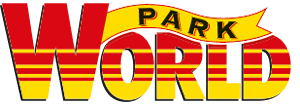
When it comes to wooden coasters, the use of trains from Philadelphia Toboggan Coasters (PTC) is pervasive. Although eight companies supply trains for wood coasters, nearly two-thirds are from PTC. Why? Since 1904 PTC has made the quality of its products top priority. Paul Ruben pays a factory visit.
Philadelphia Toboggan Coaster products, parts, and services cover the needs of rollercoaster owners and operators worldwide. The company’s commitment to excellence may explain its longevity, and has earned it the respect and admiration of the entire amusement industry.
The comprehensive PTC product line includes five different styles of coaster cars/trains, plus brakes, queue gates, safety gates and spare parts. The firm also specialises in the restoration and refurbishment of used and currently-operating equipment, and can custom manufacture any part to customer’s exact specifications.
Tom Rebbie, an avid baseball fan and life-long amateur baseball player, is the president and CEO of PTC. He has been with the company for 30 years, the past 15 at its helm. If PTC’s commitment to excellence explains its longevity, Rebbie believes that “having a multitude of products to offer the amusement industry” is also a factor.
Over the years PTC has built rollercoasters, carousels, flat rides, water rides, swimming pools, ticket booths, fun house items, games and even mechanical window displays for department stores at Christmas.
But PTC’s strongest point, Rebbie contends, “is building a good product and standing behind what we build. PTC did not last a hundred years by using smoke and mirrors with our customers.”
Although PTC coaster cars appear virtually unchanged from year to year, change is evident if one looks closely. The engineering is evolutionary rather than revolutionary.
“We change to make things safer for the riders and stronger,” Rebbie discloses. “The biggest change in PTC and the entire amusement industry in the last 100 years is safety. If you’re not going to do everything possible to keep the people who come to the parks safe, you will not last very long.”
California Coastin’
There has also been an extension of PTC’s product line. For years it offered just three types of cars: four-seat cars, six-seat cars and four-seat junior cars in an articulating and non-articulating style. In 1994 it acquired the wooden coaster car division of the Morgan Manufacturing in California, which was building trailer cars, and the cars were marketed under the name “The California.”
“We still offer the trains,” confirms Rebbie. “Just no one has asked for them, but we still support the trains out there running.”
Most recently PTC has reacted to new demand for wooden coaster cars. “We again offer the two-seat articulating coaster car,” says Rebbie. “It can do an out-and-back coaster, a family-style coaster or a cyclone-style coaster. It works on all levels. It depends on what the customer needs for their ride. We have had a two-seat car. PTC has made them, and updated the drawings in response to customer requests. We do our best to give them what they want.”
Another change at PTC is its location. Founded in Germantown outside Philadelphia in 1904, the company moved in 1971 to Lansdale, Pennsylvania. In 1999 it relocated its headquarters and manufacturing facility to Hatfield, Pennsylvania, where it employs nine full-time staff including Rebbie, two part-time, plus two outside sales people.
“It’s been 10 years since we moved the company, from 26,000 sq ft to 46,000 sq ft,” Rebbie recalls. “It was all part of the buyout with Sam High, my old boss who owned PTC. We had to stay there for seven years. We then moved because I wanted to own my own building. So now I look out and see horses, cows and sometimes deer running in the fields across the street, instead of alley cats and a brick wall. The move also benefits our customers, we are bigger and can take in more trains in winter to rehab. One year our work might be overhaul, then the next new cars. Or sometime it’s 50/50.”
Coasters & Carousels
The Philadelphia Toboggan Company, the forerunner of PTC, was founded and established in 1904 by Henry Auchy and Chester Albright. Over the years, famous names in the rollercoaster industry such as Joe McKee, John Miller, Johm Zalar, Herbert P Schmeck and John Allen were responsible for 147 wooden coasters bearing the PTC banner. Eighty-two of those coasters are still in operation today. PTC also manufactured 87 carousels, with approximately 35 still riding strong.
Although PTC no longer builds wooden coasters and some of Rebbie’s customers will not build coaster trains, others do. “You have to ask them why. We offer the same style they offer and more. It’s business,” acknowledges Rebbie. You don’t like seeing your customers who are your friends too, leave you and it has happened to PTC. But it is nice when they come back and say ‘I should have stayed with you.’ I don’t look at it as an ‘I told you so’ thing. From my point of view it’s nice to know they respect PTC’s product and that goes a lot farther then any advertisement you can buy.”
PTC trains offer some built-in advantages. “Throughout the history of PTC, we know how to build coaster cars,” Rebbie reminds us. “They are tanks. They hold up to the test of time. They hold up if they (and this rarely happens) run in to another train, and the riders are protected if there is a incident. We are a long-standing company, not someone who wants to make a buck by doing something he knows nothing about.”
As for the disadvantages of PTC trains, Rebbie believes “not having PTC trains is a big disadvantage to your riders!”
Most knowledgeable riders agree.
Time to diversify?
Although Philadelphia Toboggan Coasters supplies primarily coaster cars and related equipment, Tom Rebbie admits to looking into other new products, but remains non-committal. He has also considered re-entering the wooden coaster building business.
“I’ve been thinking about it for the past 20 years,” he says, ”but I have some good friends who are doing just that. I don’t use people and then stab them in the back; had it happen to me too many times. I won’t do that to friends.”

